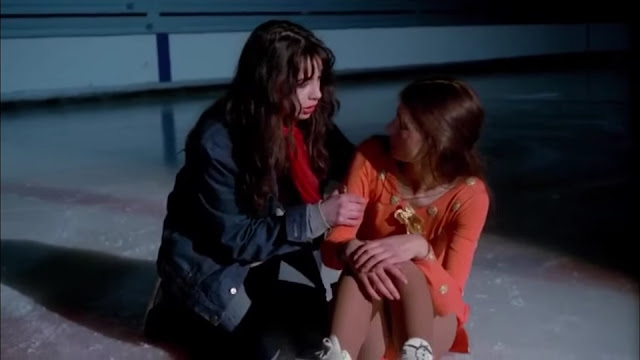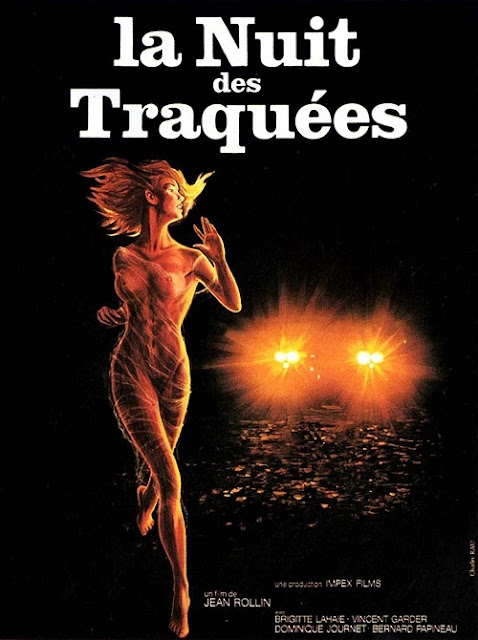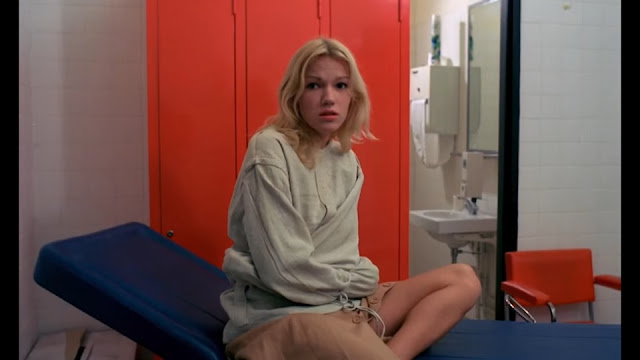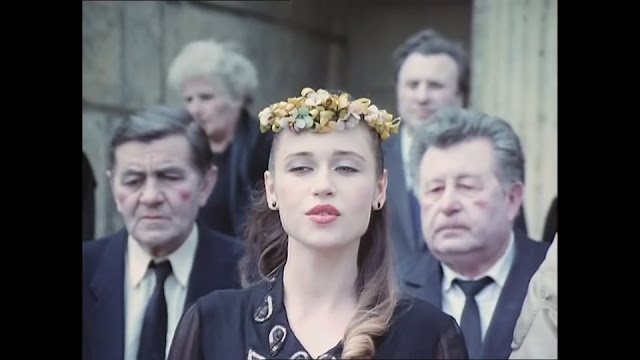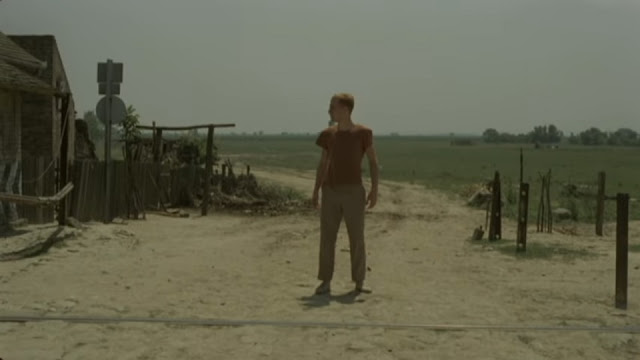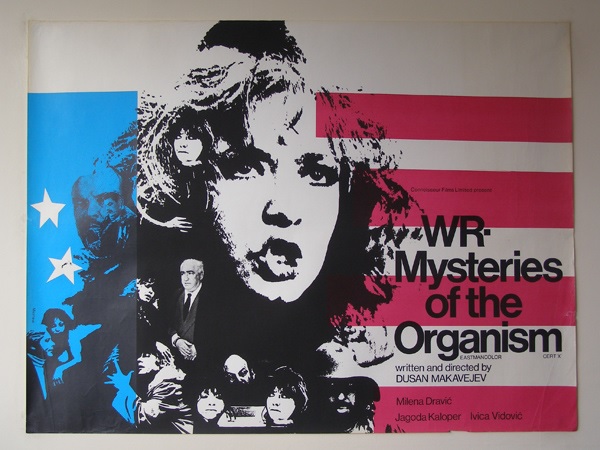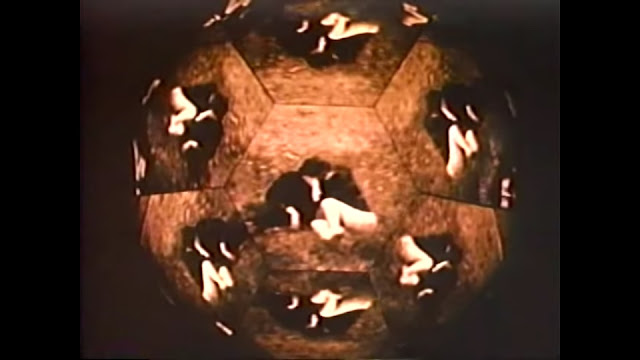French director Jean Rollin, considered an auteur by some, and a schlockmeister by others, was often constrained by the studio system, and given bugger all to make movies with. From what I understand, one particular studio gave him a job, and insisted this one was to be normal. No vampires, lesbian or otherwise, and keep it realistic, with none of that high-falutin' art stuff. However did Jean manage? We'll see as we discuss 1981's The Escapees...
Michelle and Marie are two unstable young women, newly escaped from a mental hospital. Michelle is a rebellious 'troublemaker', while Marie is shy to the point of paralysis, and follows Michelle only so she won't be lonely. Together, these reluctant partners find themselves watching a travelling show, falling in with pickpockets, visiting lurid nightclubs, and more, all the way seeking freedom from the old life that kept them shackled...
The Escapees is an interesting movie in some ways, and a little slow moving. It's a nice exploration that borders on melodrama at times, but manages to keep interest throughout, despite being a bit too long.
The characters are quite well written. Michelle is a bitch from the get-go, with absolutely zero interest in being Marie's carer or friend, but due to the shy yet determined girl's insistence, and circumstances beyond their control, Michelle begins to soften up and let Marie in. Marie meanwhile is sensitive and enigmatic,with an implied past that is tragic, and has a lot of humanity. It's sweet seeing her really open up at the ice skating rink.
Their connection becomes an interesting one by the end, and feels earned, save for the obligatory lesbian angle, which comes a little out of nowhere. At least show how deep their connection is, even if it does verge on the ridiculous that they've gone from heterosexual strangers to pashing life partners in the span of two days.
The remainder of the cast has some interesting people, big and little. Many of them are down on their luck, or caught in bad situations, like the sadness present with the carnival operator, and what he and his wife must do to keep afloat. There's also a young pickpocket Sophie, who's a bit sneaky and abrasive, but endearingly loyal. I wasn't a fan of the libertines in the last act though.
Where
the movie really makes a misstep for me is the climax. It takes such a
sudden detour into violence, feels a bit forced, and the outcome is just plain depressing,
on all angles! It really makes you pissed off! These poor girls have
been through so much, why couldn't they just get to go to the Leeward
islands, and party it up on a calm beach for the rest of their lives?
Instead it's just continued misery, imprisonment, or death for all of them.
Another adverse effect the ending has is entirely justifying the supposedly evil mental hospital. So often we see movies about how mental patients are really just misunderstood folks who are shackled by a blind and cruel system, and certainly that is true some of the time, but when the movie ends by showing the pair killing several people and having a shootout with the police, before attempting double suicide, it entirely ruins that message, and makes you wish they were still locked up, for their own good!
The
Escapees represents one of Jean Rollin's greater diversions from his
regular output, but also unmistakeably bears his fingerprints. The film is set
entirely in the real world, with no supernatural aspects, and a
'juvenile girls' drama. The tone is also more grounded than dreamlike. There are familiar locations, rusted and forgotten. Female friendship is still a big element, and is handled with his usual maturity. The film's best scene is the ice rink setpiece, which looks gorgeous, and sheds great light on Marie's character. Even those who don't like this film (of which there are many) consider this to be a crowning moment for the movie.
Laurence Dubas and Christiane Coppé are nice leads, who each bring something different to the table. Dubas is loud and abrasive, sometimes annoyingly so, but manages to balance things well, while Coppé gives a more understated and subtle performance, without coming off as wooden or emotionless. Also in the cast are Marianne Valiot as the duo's ill-fated friend, and a brief appearance by Rollin mainstay Brigitte Lahaie, among others.
The direction is easily the best thing about The Escapees, with Rollin bringing his usual A-game here. His eye for locations is fantastic, as are the way he shoots them. There are many striking images, with the ice skating in particular being filmed with such talent. Even the end, as frustrating as it is, still gives us a great final shot.
Regular composer Philippe D'Aram does another fine job here. The score is subtle, and the film is quite silent in many places, but it's really nice when it plays, and fits the tone perfectly, and helps create it in some scenes.
The Escapees isn't for everyone, and there is a reason it ranks lowest on Jean Rollin's filmography. A grounded take on 'teen' drama just isn't as interesting to those who prefer vampires, ghosts, and goblins. But for all its faults I still think it's a pretty good film, even if I normally steer clear from genres like this...






